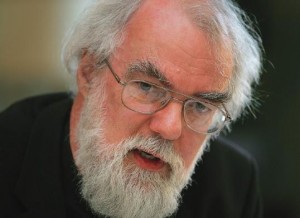This morning at church, we looked at the first six verses of Colossians chapter one. Our pastor titled the sermon, “The marks of a genuine Christian”.
He’s a good communicator and preached well. But this morning did expose a weakness in the evangelical desire to chunk the Bible up into ‘bite size chunks’ and preach verse by verse exposition. The Bible was not written in chapters and verses – and there is a danger that we impose an artificial structure onto God’s Word that distorts its meaning.
I don’t want to sound like a whiner about this, but it really does irritate me when evangelical presuppositions result in glaring omissions from Biblical exposition. To put it simply, I think our pastor got it wrong this morning – not in what he did say, but in what he didn’t. Here’s what we should have heard in church today, but didn’t.
Today’s sermon gave us three marks of a genuine Christian: Faith in Jesus (v4); Love for other Christians (v4); and, Hope of heaven (v5). But what about verse 6 – that the Good News of the Gospel is bearing fruit? The New Living Translation helpfully translates verse 6 as the Good News “is bearing fruit everywhere by changing lives, just as it changed your lives since the day you heard and understood the truth about God’s grace.”
This emphasis on changed lives in the here and now is then reiterated powerfully in verses 10 and 11.
In fact verses 8 through 13 just repeat what was said in the first six verses. The “three marks of a genuine Christian” are repeated again, but it seems to me that there is clearly at least a fourth sign: that our lives are meant to demonstrate that the Gospel has come (I also think there is something there about growing in our depth of understanding of what God has done for us – but I’ll leave that for another day). If everything we believe makes no difference to how we live now, what is it worth? And that does not simply mean some spiritual longing for a better life somewhere else. It means that we strive hard to “make it on earth as it is in heaven” – just as Jesus taught us to pray!
Faith in Jesus, love for others and the saints, and hope in heaven are definitely signs of being a genuine Christian. But they are not enough. The Bible is clear and consistent in its witness that you prove your Christian beliefs by your good works. Colossians 1 itself is clear on this. Why do evangelicals so easily and consistently miss the “good works” theme of the Gospel when it is in such plain sight?

 Recently, Dr Rowan Williams gave an excellent speech on the issue of our responsibility towards Creation and a Christian response to environmental crises. The Bible has a clear message about caring for the environment – not just for the here and now, but also because at the end of time this planet will be renewed and restored to pre-Fall glory and be the paradise heaven of God’s Kingdom.
Recently, Dr Rowan Williams gave an excellent speech on the issue of our responsibility towards Creation and a Christian response to environmental crises. The Bible has a clear message about caring for the environment – not just for the here and now, but also because at the end of time this planet will be renewed and restored to pre-Fall glory and be the paradise heaven of God’s Kingdom.